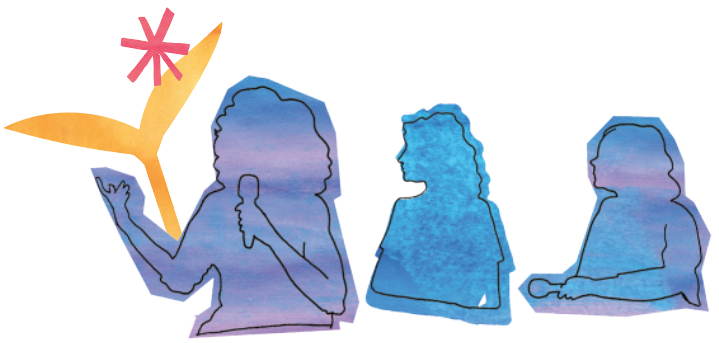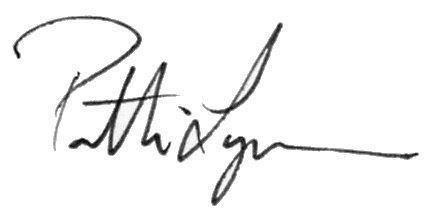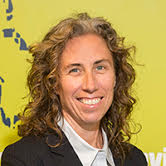This is what accountability looks like
Field Notes For Transformation, Spring 2021
Dear friend,
Following the attack on the Capitol in January by white nationalists, there was a lot of talk about the need for accountability in the mainstream. From podcasts to op-ed pages, accountability was emphasized as a necessary component to moving forward together.
It makes sense. At its heart, accountability is simple and just: When you cause harm, you acknowledge it, face the consequences, change your behavior, and make amends.
Those who work on transformative justice and restorative justice—especially Black women and women of color like Mariame Kaba and Mia Mingus—have long uplifted accountability as a central component to repairing interpersonal and societal harm. As flawed humans living in a flawed world, we will all cause harm. Our work as caring, thoughtful people is to get comfortable and practiced at being accountable to ourselves and each other.
But the truth is, most of us don’t have the support, structures, and communities needed for us to do this well. Accountability is hard to practice, and it’s hard to come by. Let’s face it: The white supremacist, extractive capitalist society we all live under is actually structured to enable those who enact the most harm to bypass accountability altogether.
We saw this clearly when the Senate failed to convict the former president for inciting the January attack. Author Anand Giridharadas wrote in a February post titled Who Gets a Second Chance: “what we’ve known all along was confirmed once again, and flagrantly: that certain people, especially if they are rich and powerful and white and male, enjoy total impunity in American public life.”
I wouldn’t blame you if this makes you want to throw your hands up and despair that nothing will ever change. I’ve had those moments for sure. But then I return to Corporate Accountability’s mission and one of our central theories of change: The unchecked economic and political power of corporations are the driving force behind so much societal harm, and reining in that power creates the conditions needed for transformative policy and cultural change.
Accountability is literally in our name. This moment calls on us to go even deeper, further, and more effectively on our quest for corporate accountability.
For me, the recent lack of accountability makes me even more committed to forging a new path forward alongside other organizers around the world and across this country who understand the transformative power of accountability. I know that this is our role in the larger social justice movement.
And that’s why I’m looking to our work right now in holding Big Polluters liable as a model for not only climate justice, but also doing our part in shifting the larger culture around accountability.

Acknowledging harm, facing consequences, making amends
Holding Big Polluters liable—making them pay—is far more than simply lawsuits. It’s a very tangible form of accountability—it forces acknowledgment of harm, comes with real consequences, and moves toward repair. Here’s what I mean:
The push for liability exposes and brings to light the ways Big Polluters have fueled—and continue to fuel—the climate crisis. For more than half a century fossil fuel executives, for example, have known about the damage being done to people, the earth, and the climate from the extraction and burning of fossil fuels. Their response was, and is, a massive campaign of denial, cover-up, and confusion so they could continue business as usual. While some CEOs and other decision-makers may never publicly acknowledge this harm, the push for liability means they will have to reckon with it one way or another.
Which leads to the next step in accountability: It forces Big Polluters to face consequences. Fundamentally, our campaign seeks to change the way these industries are allowed to operate, to take away their social license, and to curb their power. Liability is about preventing Big Polluters from being able to influence policy—behind the scenes or out in the open. It’s about being able to take Big Polluters to the International Criminal Court—and win—for their crimes against humanity and the planet. It’s also about the future: locking in changes to ensure that Big Polluters are no longer able to perpetrate abuses in the future.
And finally, the campaign for liability forces Big Polluters to make amends. While no amount of reparations can pay for the lives lost, homelands decimated, water polluted, and species made extinct, liability can still play a key role tackling the deep, racist injustices of the climate crisis. It can be part of the way that U.S. and other Global North countries account for their “fair share” of addressing the climate crisis. These governments must find ways to equitably redistribute money (whether from liability lawsuits or reparative policies) to those who are and have long been on the front lines of this crisis. In this way, liability can help fund the implementation of solutions led by these communities. It is a necessary part of a just transition, and it can restore communities’ power and control over their lands, resources, environment, and health.
A critical component of achieving climate justice
Already, we’ve seen the impact of the campaign for liability on the interlocking strategies of the climate justice movement. The role of Big Polluters in the climate crisis is no longer in doubt or debated in most circles. The harm they cause is acknowledged by most people—including, now, those who hold the highest office in the U.S.
And as a result, these industries, particularly the fossil fuel industry, are facing consequences. For example, from the University of California to New York State to Norway and more, institutions, cities, states, and whole countries are moving their money out of fossil fuel investments. These wins, coming fast and furious, are the result of the decades of organizing by the divestment movement. And, our shared commitment and work to demand accountability from Big Polluters have created conditions that are causing all manner of investors to pull back from the toxicity of Big Polluters.
The movement led by Indigenous and Black communities and others at the front lines of the climate crisis has also made a significant impact on the Biden-Harris administration. We see this, for example, in the halting of the Keystone XL pipeline project and the pause on all new oil and gas leasing on federal land. The climate justice movement has ensured that Big Polluters can no longer operate business as usual under this administration.
The global campaign for accountability
The campaign to hold Big Polluters liable is powered and supported by grassroots movements, lawyers, public officials, and people like you around the world. In the coming months and years we and our allies will organize decision-makers to hold the fossil fuel industry liable—from elected officials in the state of California, to governments in Africa, to international delegates at the U.N. climate treaty.
Together, we will fundamentally shift the systems that have enabled Big Polluters to get away with fueling the climate crisis. They will be held accountable—and I firmly believe our shared wins in this campaign will help create the necessary shifts in our broader culture toward more accountability.
All of us, together have our role to play in creating the future we believe in. I’m proud to be leaning into our work on accountability, building on our more than forty years of impact. And I’m honored and grateful to be doing this work in partnership with you.
Onward,

Patti Lynn, Executive Director



